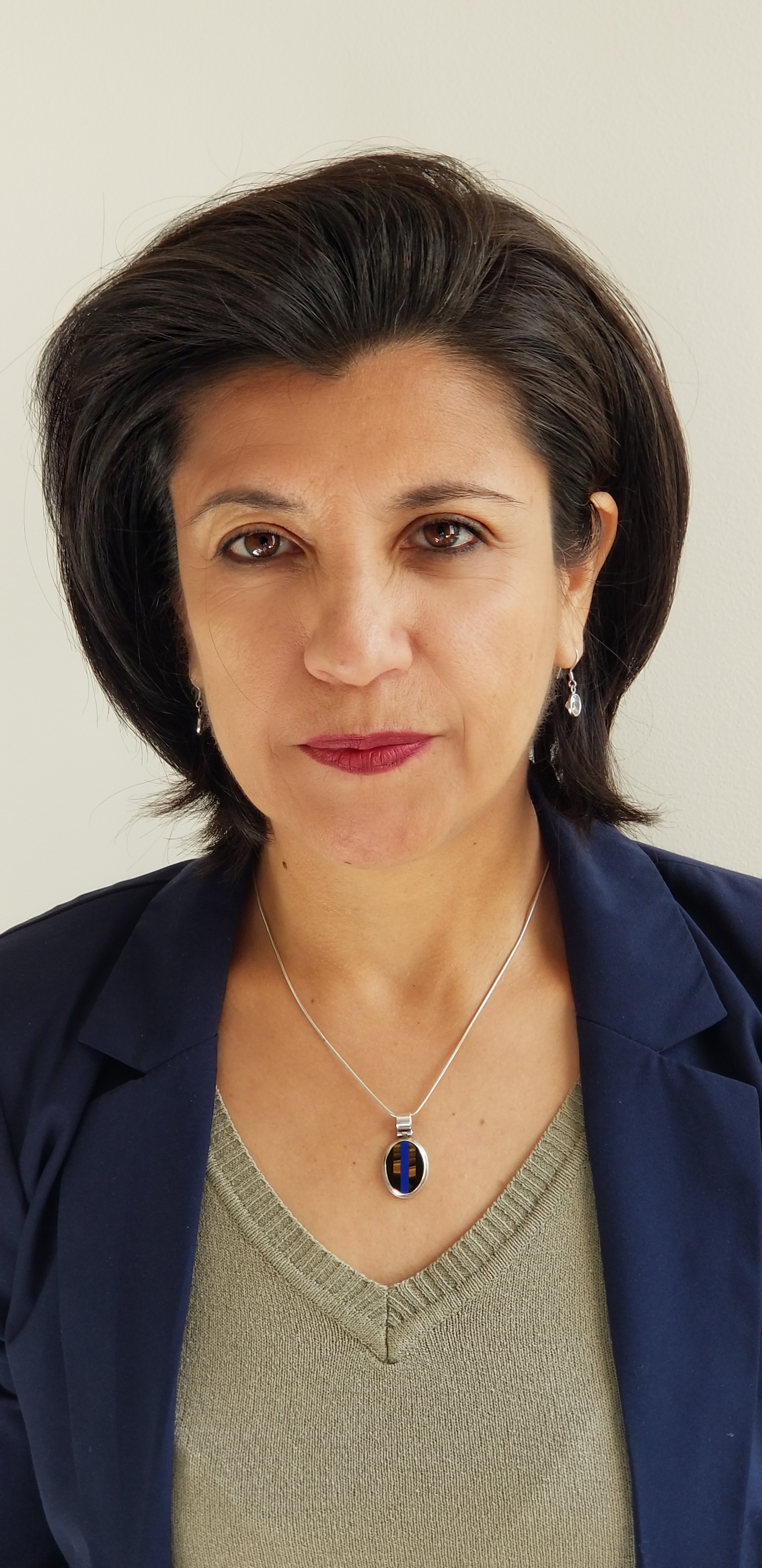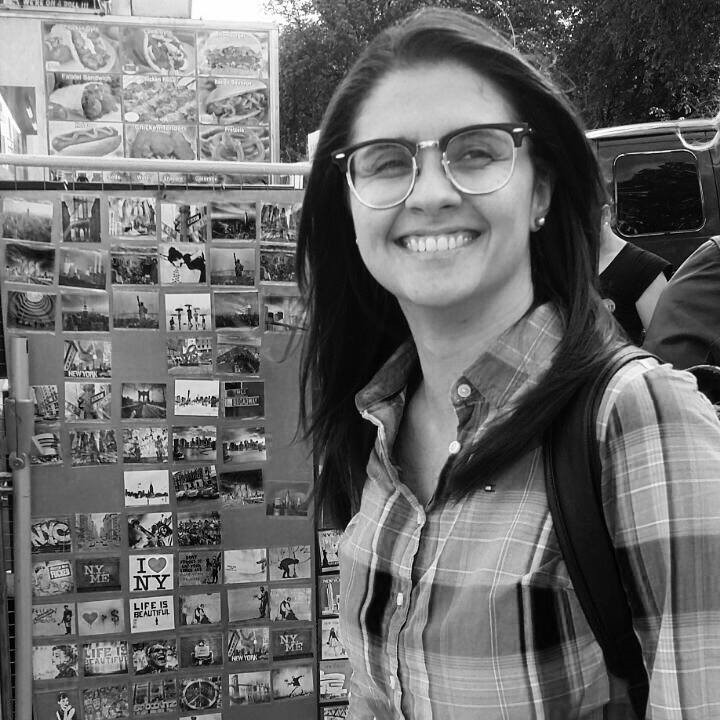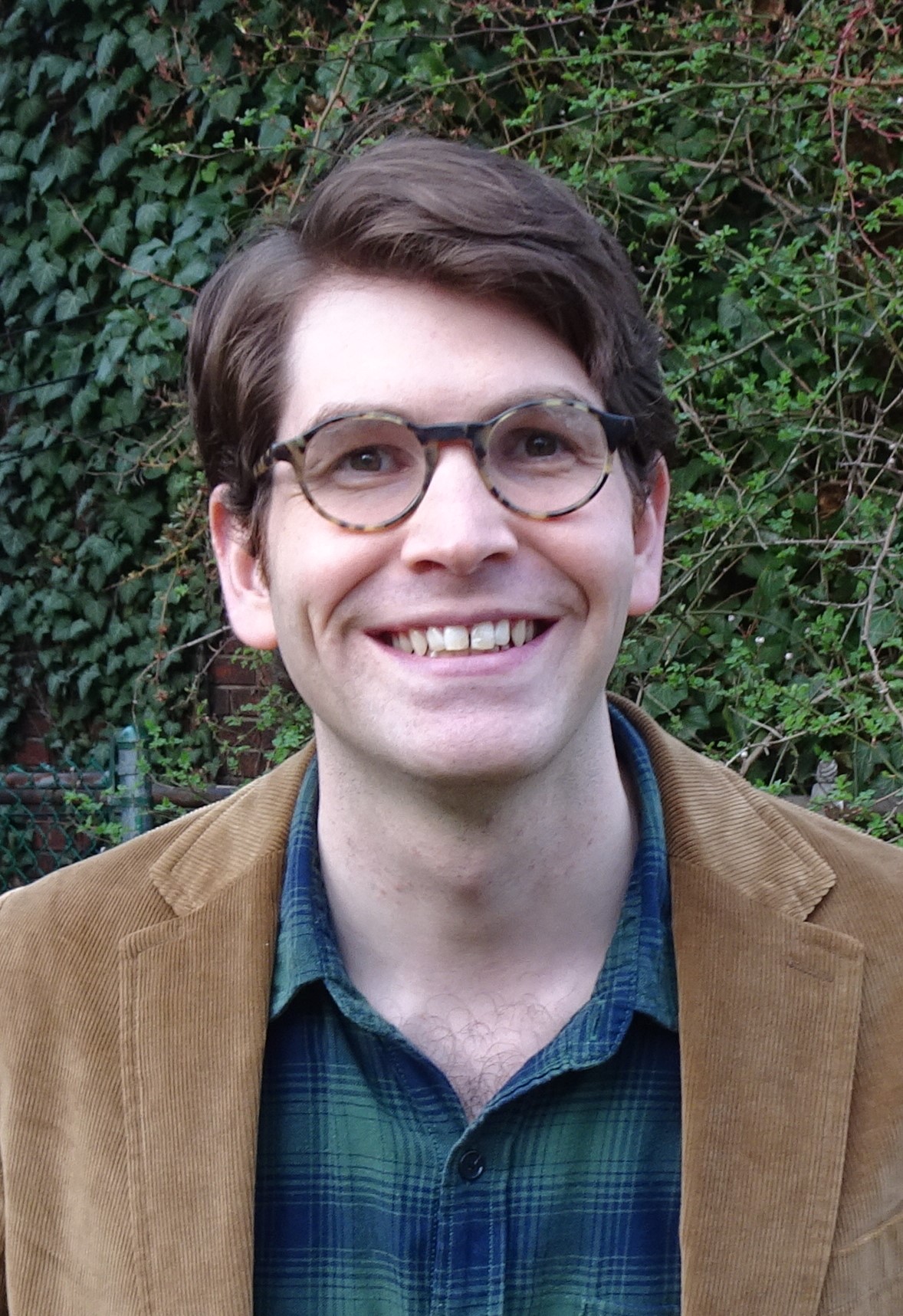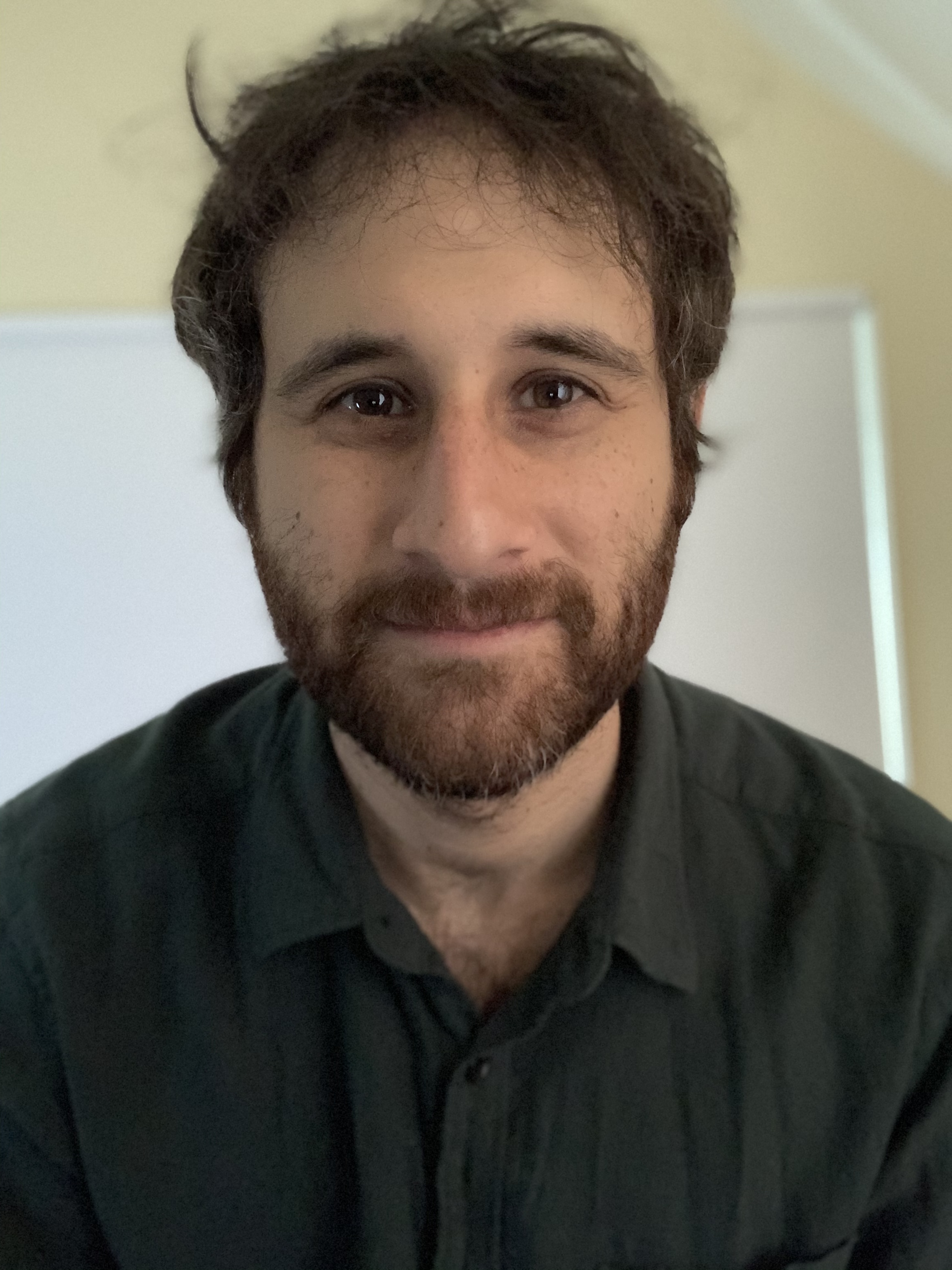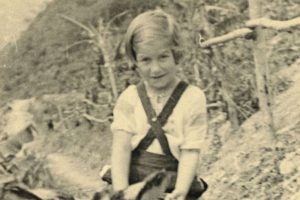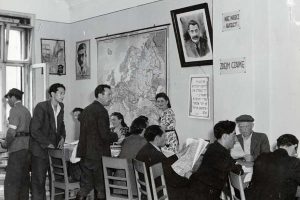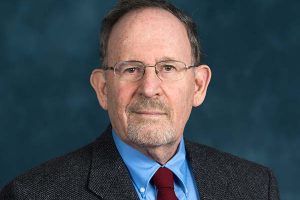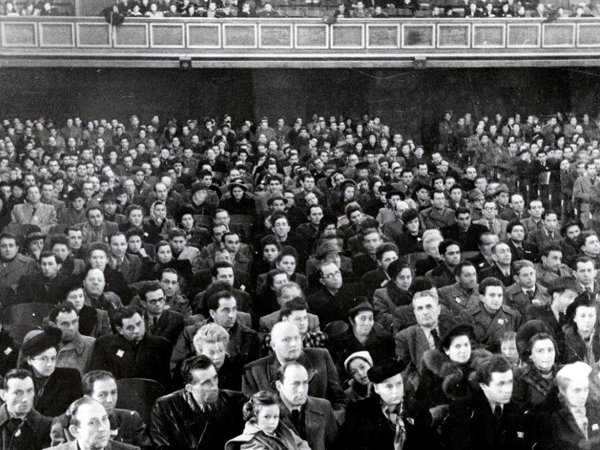
JDC Archives Virtual Programs: Spring–Summer 2022
Please join us at our upcoming virtual programs!
The JDC Archives is offering an array of online public programs in the coming months. These events are listed below; please register for each one individually by clicking on its RSVP link. Recordings of past programs are available via our Public Programs Recordings page.
WEBINAR:
Bolivia, A Forgotten Refuge During the Holocaust: Jewish Immigration 1937-1941
Tuesday, May 10, 2022
12:00pm–1:30pm (EDT)
The immigration of Jewish refugees to Bolivia is a lesser-known chapter in Holocaust studies. Approximately 20,000 refugees fleeing Nazi Europe arrived in Bolivia between 1937 and 1941, at a time when other Latin American countries ended their open-door policies. Bolivia’s immigration policies centered around development and agricultural settlement. The exceptional involvement of a Jewish entrepreneur and the second wealthiest man in Bolivia, Maurice Hochschild, made this possible contrary to all assumptions that this South American country would not be capable of absorbing migration. How did so many refugees find safe haven in a remote and little-known country even before the envisioned agricultural project started? Which channels were used by refugees and immigrants in the “panic migration” years 1938-1939, as described by the Joint? Using memoirs and JDC archival material, the lecture will highlight stories of refugees, who were denied refugee status in Czechoslovakia and elsewhere in Europe but found help from JDC and other organizations on their way to Bolivia.
Dr. Sandra Gruner-Domić is a sociocultural anthropologist and independent researcher. She worked recently at the University of Southern California Shoah Foundation and taught at USC as well as at California State University Long Beach. Some of her recent publications are “Interweaving Memories and Identities of Displacement: Jewish Refugees in Bolivia,” in Patterns of Prejudice Special Issue: Holocaust Refugees in the Colonial World: Historical and Cultural Approaches 2022 (forthcoming) and “Guatemala: Del conflicto armado al genocidio,” Foreign Affairs Latinoamérica (19) 3:75-80. Dr. Gruner-Domić’s ongoing research projects are narratives of Guatemalan genocide survivors and Holocaust survivor’s migration to Bolivia. She is the recipient of the 2021 Bernard and Mollie Steuer / JDC Archives Fellowship.
RSVPWEBINAR:
“Not Undesirable but Unnecessary”: Jewish Refugees from Nazism in Colombia (1945-1950)
Monday, June 13, 2022
12:00pm–1:30pm (EDT)
The problem of Jewish immigration in Latin America did not end with the defeat of Nazism nor with the dramatic revelation of the crimes committed by the Nazi regime. Some recent research has explored the continuity of discriminatory policies after the war and the complex reception of Holocaust survivors in Latin America. This lecture will examine the religious, cultural, political, and economic discrimination and restrictions that Jewish immigrants faced in Colombia. Restrictive immigration policies were maintained in the country until around 1948, when legislation 161 was enacted, which “relaxed” the requirements to enter Colombia. However, this legislation favored Catholic migrants from Western Europe and negatively affected a large number of Holocaust victims. The Colombian civil war and international events of 1948 had a profound and devastating impact on the country’s Jewish communities. Documents from the JDC Archives indicate that this situation forced the local Jewish community to make different requests for international aid in order to re-establish its economic life; but these requests competed with similar demands from other Jewish post-war communities.
Dr. Lorena Cardona González is a professor in the Faculty of Social and Legal Sciences at the Universidad de Caldas (Colombia). She earned her Ph.D. in History and MA in History and Memory from the Universidad de la Plata (Argentina).and was a Postdoctoral Fellow in History at the Instituto de Investigación en Humanidades y Ciencias Sociales (IdICHS) and National Scientific and Technical Research Council (CONICET) at the Universidad de la Plata. Dr. Cardona González is the recipient of numerous fellowships, including the Judith B. and Burton P. Resnick Postdoctoral Fellowship at USHMM. Her projects focus on representations of the Holocaust in Colombia, the history of Jewish and German migration during World War II, the Nazi party in Colombia, and the postwar treatment of Jewish refugees from Nazism. Dr. Cardona González is the recipient of the of the Max and Cecil (Steuer) Chesin/JDC Archives Fellowship. Her research in the JDC Archives deals with the integration of Jewish refugees from Nazism in Colombia during the postwar period.
RSVPWEBINAR:
Passover for the Passed Over: Jewish Religious Life in Poland after 1968
Wednesday, June 29, 2022
12:00pm–1:30pm (EDT)
The political upheavals of the twentieth century left lasting marks on the Jewish communities of East Central Europe. Most Jews were annihilated during the Holocaust, and those who survived and remained in the Eastern bloc, were often repressed by the succeeding Communist regimes. This was especially the case in postwar Poland, which experienced several intense periods of hostility, culminating in the March 1968 antisemitic campaign, in which approximately 15,000 of the remaining 30,000 Jews were expelled. Little research on Polish Jewry, however, directly explores the fate of those Jews who continued to live in Poland. Relying especially on JDC archival documents, this talk will explore the observance of Passover as a case study for understanding divergent processes of Jewish identity maintenance and formation in Poland during the period of late socialism (1970s-1980s) through the fall of Communism.
Dr. Jonathan Zisook is a Visiting Lecturer in Sociology at the University of Pittsburgh, where he also serves on the faculty of Jewish Studies. He received a PhD in Sociology from the Graduate Center, City University of New York. Dr. Zisook’s research has been supported by the Polish-U.S. Fulbright Commission, the Auschwitz Jewish Center in Oświęcim, and the JDC Archives. His scholarship has appeared in the Journal of Classical Sociology, Religious Studies Review, and Studies in Contemporary Jewry. He is a recipient of 2021 the Fred and Ellen Lewis/JDC Archives Fellowship. His research in the JDC Archives deals with the sociopolitical and religious history of Jewish life in Poland after 1968.
RSVPWEBINAR:
“Who Should the Players Be?”: The JDC in the Soviet Union, 1989-1991
Monday, July 18, 2022
12:00pm–1:30pm (EDT)
After decades of state repression, the relatively liberal political and social climate of the late 1980s emboldened Jews across the Soviet Union to imagine a transition from illegal to legal forms of Jewish expression and activity, from underground to above-ground organization, and to conceptualize a new pluralistic mode of Jewish activism dedicated to rebuilding a Jewish institutional sphere on Soviet soil. These developments unfolded indelibly in a context of dynamic transnational Jewish activism and philanthropy, in which global Jewry invested heavily in communal reconstruction in the Soviet Union. This talk examines the influence of foreign Jewish organizations on the evolution of legal Soviet Jewish society in the late 1980s and early 1990s, with a focus on one of the most active participants: the JDC. Drawing on archival trip reports, correspondence, and policy papers, as well as interviews with JDC staffers, the talk surveys the Joint’s policy and programming in this early phase of communal rebuilding while shedding light on the mechanics of late-Cold War Jewish philanthropy and the evolving nature of social and material assistance to Jews as the Soviet Union stumbled toward collapse.
Joshua Tapper is a Ph.D. candidate in Jewish History at Stanford University, where he is completing a dissertation on the revival of Jewish organizational and cultural life in the final years of the Soviet Union and early post-Soviet period. His research has been supported by the Social Sciences and Humanities Research Council of Canada, the American Jewish Historical Society, the American Jewish Archives, and the Center for Russian, East European, and Eurasian Studies and The Europe Center, both at Stanford. Josh is the 2021-2022 recipient of the Ruth and David Musher/JDC Archives Fellowship. His research in the JDC Archives focuses on the transnational politics of Soviet Jewish communal development in the late 1980s and early 1990s.
RSVP